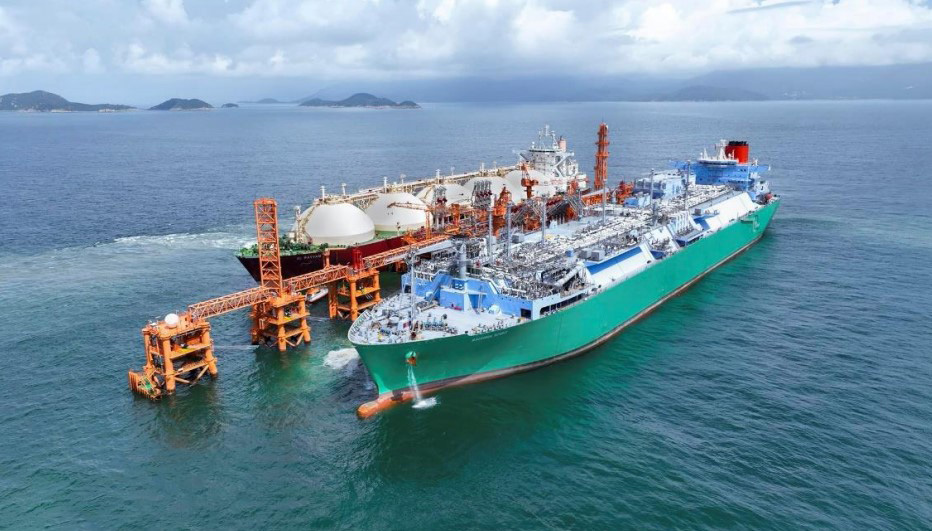
MOL’s huge fleet of liquefied natural gas carriers continues to expand and the Japanese shipping giant currently has more than 30 LNG vessels on order.
The company’s CEO, Takeshi Hashimoto, and CFO, Hisashi Umemura, discussed MOL’s LNG business during a recent presentation on the company’s business performance for the second quarter of fiscal 2023.
According to the presentation, MOL had 97 LNG carriers in its fleet as of September 30 this year, three more vessels compared to the prior quarter.
MOL expects that it will have 99 LNG carriers in its fleet by the end of March next year.
This includes LNG carriers owned and/or operated by joint venture companies.
Besides LNG carriers, the liquefied gas carrier fleet also includes 2 LNG bunkering vessels, 1 LNG powership, 4 FSUs/FSRUs, 16 ammonia/LPG ships, and 6 ethane carriers.
Hong Kong’s first FSRU-based LNG import facility, owned by a joint venture of CLP Power and HK Electric, started commercial operations in July.
MOL’s 263,000-cbm FSRU Bauhinia Spirit serves the offshore terminal under a charter deal.
Umemura said that “We have ordered more than 30 LNG vessels based on the growth and the need for LNG transportation due to the increasing demand for LNG in Europe and other regions.”
A presentation by the company released earlier this year shows that MOL had 33 LNG carriers on order as of the end of March and a total of 127 LNG vessels in its fleet.
MOL said in the presentation that is the biggest LNG carrier fleet in the world looking at the number of vessels.
VesselsValue data shows that MOL has at least 34 LNG carriers on order in South Korea and China and scheduled for delivery between 2023 and 2027.
The Japanese firm has in total 16 LNG carriers on order at Hudong-Zhonghua, the data shows.
Moreover, MOL has at least 3 LNG carriers on order at South Korea’s Samsung Heavy Industries and 15 LNG carriers on order at Hanwha Ocean, previously known as DEME, according to the data.
In addition to its growing fleet of LNG carriers, MOL plans to have 90 LNG-fueled vessels and methanol-powered ships in its fleet by 2030 as it looks to phase out heavy fuel oil and decarbonize its operations.
A spokeswoman for MOL told LNG Prime that the company currently has 27 oceangoing vessels and 6 coastal vessels powered by LNG in its fleet. This includes vessels on order.
In September, MOL ordered two more LNG-powered car carriers at compatriot Nihon Shipyard.
Besides these vessels, MOL also has four LNG-powered car carriers with the same capacity on order at Shin Kurushima Dockyard.